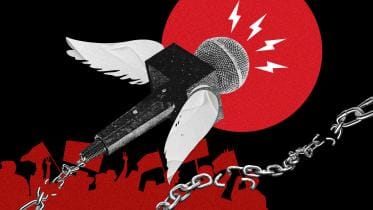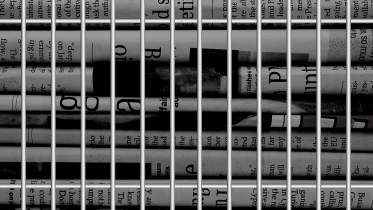Journalism in Bangladesh
The media's role in Bangladesh 2.0
Beyond the immediate challenges of political interference and legal harassment, Bangladesh’s media faces deeper structural problems.
12 December 2024, 02:00 AM
Column by Mahfuz Anam: 30 years of leading The Daily Star
However bright our past may be, there is an urgent need to further strengthen public confidence in journalism.
2 November 2023, 21:06 PM
Independent media's latest stink bomb: Fake writers
Editors are in quite a fix.
15 September 2023, 09:20 AM
Social media is no saviour of journalism
Public engagement does not necessarily equal public interest, and certainly not public benefit.
8 February 2023, 17:50 PM
How can Bangladesh have sustainable journalism and media self-regulation?
The concept of sustainable journalism is yet to get currency in Bangladesh.
5 October 2022, 12:05 PM
Why we need to rethink the Press Council
The Bangladesh Press Council is fully dependent on government funding. As a result, its independence to act as a self-regulatory body remains susceptible to government interference.
28 August 2022, 12:06 PM
Another ring in the shackle to gag the media
Is not the media already under duress, and its function heavily encumbered by the Digital Security Act (DSA), without needing a new law which is now on the anvil of the Bangladesh Press Council (BPC)?
29 June 2022, 18:00 PM






